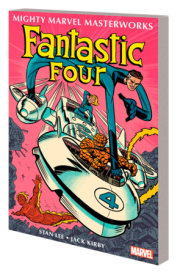Writer/editor Stan Lee (1922-2018) made comic-book history together with Jack Kirby in 1961 with Fantastic Four #1. The monumental popularity of its new style inspired Lee to develop similarly themed characters — including the Hulk and X-Men with Kirby, Spider-Man and Doctor Strange with Steve Ditko, and Daredevil with Bill Everett. After shepherding his creations through dozens of issues — in some cases a hundred or more — Lee allowed other writers to take over, but he maintained steady editorial control. Eventually, he helped expand Marvel into a multimedia empire. In recent years, his frequent cameo appearances in Marvel’s films established Lee as one of the world’s most famous faces.
Born Jacob Kurtzberg in 1917 to Jewish-Austrian parents on New York’s Lower East Side, Jack Kirby came of age at the birth of the American comic book industry. Beginning his career during the rising tide of Nazism, Kirby and fellow artist Joe Simon created the patriotic hero Captain America. Cap’s exploits on the comic book page entertained millions of American readers at home and inspired U.S. troops fighting the enemy abroad. When World War II ended, the public’s interest in super heroes waned; Kirby turned his artistic talents during the 1950s to other genres, such as monsters, Westerns and crime — as well as the first-of-its-kind Young Romance Comics. In 1961, Kirby returned to super heroes to illustrate what would become the defining issue in Marvel Comics history: Fantastic Four #1. Written by Stan Lee, the team’s debut revolutionized the industry overnight. In contrast to the staid artwork of his predecessors, Kirby’s illustrations seemed to leap off the page with eye-popping action and drama. For the next decade, Kirby and Lee would introduce a mind-boggling array of new characters — including the Avengers, the Hulk, Thor, Iron Man, the Silver Surfer and the X-Men. Taken together, Kirby’s groundbreaking work with Lee formed the foundation of the Marvel Universe. In the early 1970s, Kirby moved to DC Comics, where his boundless creativity continued. He returned to Marvel in 1975, writing and illustrating Captain America and introducing his final major concept, the Eternals. With the explosion of TV animation during the 1980s, Kirby’s talents turned to the small screen. Comic fans quickly recognized his work on such series as Thundarr the Barbarian and Turbo Teen. Kirby died in 1994, but his influence on the comic book industry is as strong as ever. His work has inspired a generation of professional artists and modern writers who continue to explore his vast universe of concepts and characters.

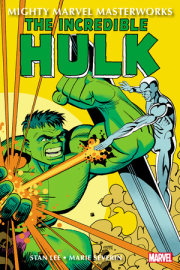
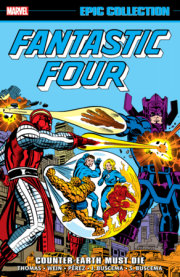
![INCREDIBLE HULK EPIC COLLECTION: MAN OR MONSTER? [NEW PRINTING 2]](https://images.penguinrandomhouse.com/cover/9781302960438?width=180)
![MIGHTY MARVEL MASTERWORKS: THE MIGHTY THOR VOL. 4 - WHEN MEET THE IMMORTALS [DM ONLY]](https://images.penguinrandomhouse.com/cover/9781302954253?width=180)
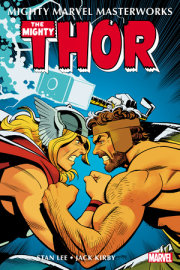
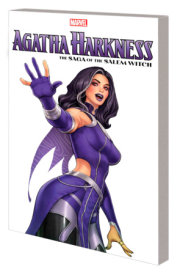
![AVENGERS EPIC COLLECTION: EARTH'S MIGHTIEST HEROES [NEW PRINTING]](https://images.penguinrandomhouse.com/cover/9781302957988?width=180)
![CAPTAIN AMERICA EPIC COLLECTION: BUCKY REBORN [NEW PRINTING]](https://images.penguinrandomhouse.com/cover/9781302957858?width=180)
![CAPTAIN AMERICA OMNIBUS VOL. 1 [NEW PRINTING 2]](https://images.penguinrandomhouse.com/cover/9781302957995?width=180)
![CAPTAIN AMERICA OMNIBUS VOL. 1 [NEW PRINTING 2, DM ONLY]](https://images.penguinrandomhouse.com/cover/9781302958008?width=180)
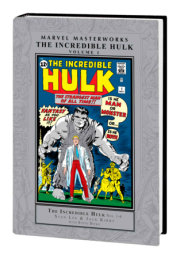
![MARVEL MASTERWORKS: THE INCREDIBLE HULK VOL. 1 [DM ONLY]](https://images.penguinrandomhouse.com/cover/9781302951399?width=180)
![X-MEN EPIC COLLECTION: CHILDREN OF THE ATOM [NEW PRINTING 2]](https://images.penguinrandomhouse.com/cover/9781302957834?width=180)
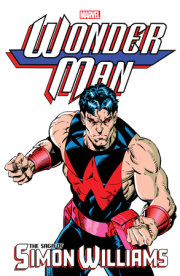
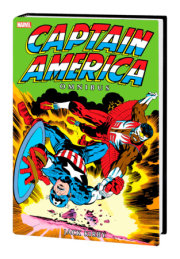
![CAPTAIN AMERICA OMNIBUS VOL. 4 [DM ONLY]](https://images.penguinrandomhouse.com/cover/9781302955144?width=180)
![MIGHTY MARVEL MASTERWORKS: CAPTAIN AMERICA VOL. 3 - TO BE REBORN [DM ONLY]](https://images.penguinrandomhouse.com/cover/9781302954314?width=180)
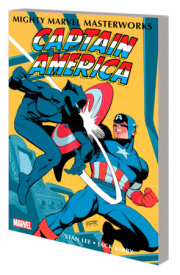
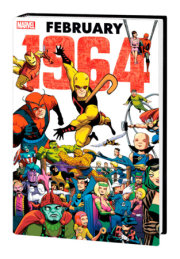
![MARVEL: FEBRUARY 1964 OMNIBUS [DM ONLY]](https://images.penguinrandomhouse.com/cover/9781302954888?width=180)
![X-MEN 4 FACSIMILE EDITION [NEW PRINTING]](https://images.penguinrandomhouse.com/cover/75960620888300411?width=180)
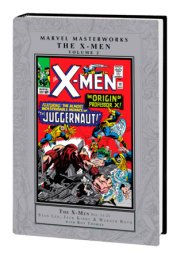
![MARVEL MASTERWORKS: THE X-MEN VOL. 2 [DM ONLY]](https://images.penguinrandomhouse.com/cover/9781302951375?width=180)
![WONDER MAN: THE EARLY YEARS OMNIBUS [DM ONLY]](https://images.penguinrandomhouse.com/cover/9781302953539?width=180)
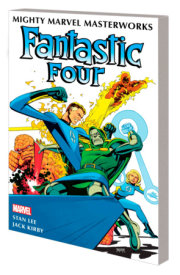
![MIGHTY MARVEL MASTERWORKS: THE FANTASTIC FOUR VOL. 3 - IT STARTED ON YANCY STREET [DM ONLY]](https://images.penguinrandomhouse.com/cover/9781302949082?width=180)
![DAREDEVIL EPIC COLLECTION: MIKE MURDOCK MUST DIE! [NEW PRINTING]](https://images.penguinrandomhouse.com/cover/9781302950569?width=180)
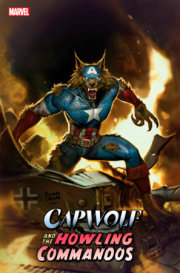
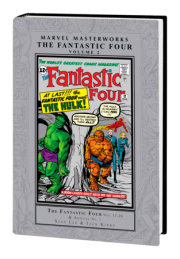
![MARVEL MASTERWORKS: THE FANTASTIC FOUR VOL. 2 [DM ONLY]](https://images.penguinrandomhouse.com/cover/9781302951351?width=180)

![MIGHTY MARVEL MASTERWORKS: THE INCREDIBLE HULK VOL. 3 - LESS THAN MONSTER, MORE THAN MAN [DM ONLY]](https://images.penguinrandomhouse.com/cover/9781302949044?width=180)
![THE INVINCIBLE IRON MAN OMNIBUS VOL. 1 KIRBY COVER [NEW PRINTING, DM ONLY]](https://images.penguinrandomhouse.com/cover/9781302953591?width=180)
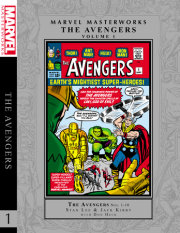
![MARVEL MASTERWORKS: THE AVENGERS VOL. 1 [DM ONLY]](https://images.penguinrandomhouse.com/cover/9781302951313?width=180)
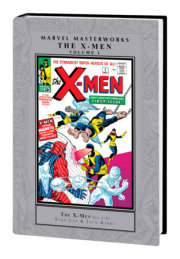
![MARVEL MASTERWORKS: THE X-MEN VOL. 1 [DM ONLY]](https://images.penguinrandomhouse.com/cover/9781302951290?width=180)
![THE AVENGERS OMNIBUS VOL. 1 [NEW PRINTING]](https://images.penguinrandomhouse.com/cover/9781302953546?width=180)
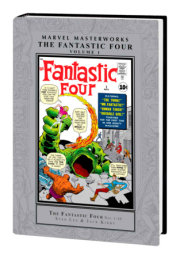
![MARVEL MASTERWORKS: THE FANTASTIC FOUR VOL. 1 [DM ONLY]](https://images.penguinrandomhouse.com/cover/9781302951276?width=180)
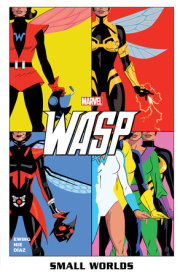
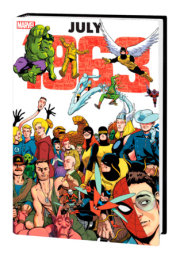
![MARVEL: JULY 1963 OMNIBUS KIRBY AVENGERS COVER [DM ONLY]](https://images.penguinrandomhouse.com/cover/9781302950095?width=180)
![MARVEL: JULY 1963 OMNIBUS KIRBY X-MEN COVER [DM ONLY]](https://images.penguinrandomhouse.com/cover/9781302950897?width=180)

![MIGHTY MARVEL MASTERWORKS: CAPTAIN AMERICA VOL. 2 - THE RED SKULL LIVES [DM ONLY]](https://images.penguinrandomhouse.com/cover/9781302948986?width=180)
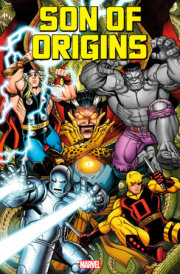
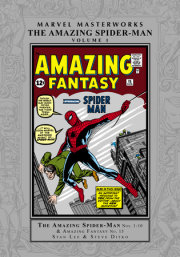
![MARVEL MASTERWORKS: THE AMAZING SPIDER-MAN VOL. 1 [DM ONLY]](https://images.penguinrandomhouse.com/cover/9781302951252?width=180)
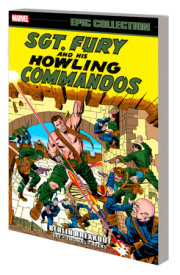
![MIGHTY MARVEL MASTERWORKS: THE AVENGERS VOL. 3 - AMONG US WALKS A GOLIATH [DM ONLY]](https://images.penguinrandomhouse.com/cover/9781302948962?width=180)
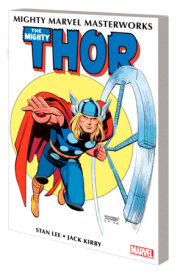
![MIGHTY MARVEL MASTERWORKS: THE MIGHTY THOR VOL. 3 - THE TRIAL OF THE GODS [DM ONLY]](https://images.penguinrandomhouse.com/cover/9781302948948?width=180)
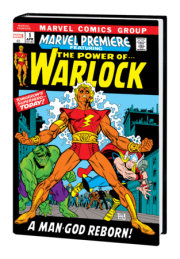
![FANTASTIC FOUR EPIC COLLECTION: THE COMING OF GALACTUS [NEW PRINTING 2]](https://images.penguinrandomhouse.com/cover/9781302950415?width=180)
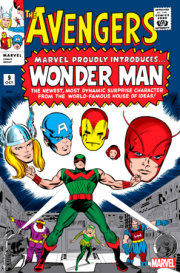
![MIGHTY MARVEL MASTERWORKS: DAREDEVIL VOL. 2 - ALONE AGAINST THE UNDERWORLD [DM ONLY]](https://images.penguinrandomhouse.com/cover/9781302948924?width=180)
![DAREDEVIL EPIC COLLECTION: THE MAN WITHOUT FEAR [NEW PRINTING]](https://images.penguinrandomhouse.com/cover/9781302950361?width=180)
![ANT-MAN/GIANT-MAN EPIC COLLECTION: THE MAN IN THE ANT HILL [NEW PRINTING]](https://images.penguinrandomhouse.com/cover/9781302950354?width=180)
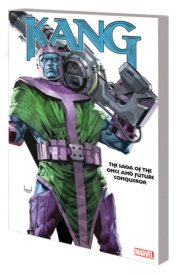
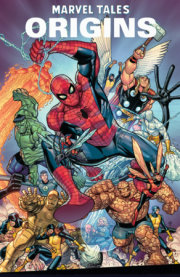
![THE BEST MARVEL STORIES BY STAN LEE OMNIBUS [DM ONLY]](https://images.penguinrandomhouse.com/cover/9781302948153?width=180)
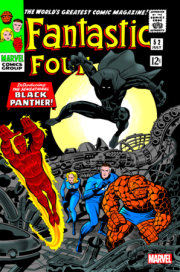
![INVADERS OMNIBUS KIRBY COVER [DM ONLY]](https://images.penguinrandomhouse.com/cover/9781302934767?width=180)
![FANTASTIC FOUR EPIC COLLECTION: THE MYSTERY OF THE BLACK PANTHER [NEW PRINTING]](https://images.penguinrandomhouse.com/cover/9781302947088?width=180)
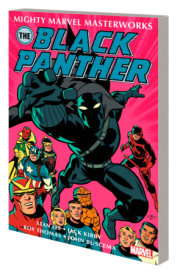
![MIGHTY MARVEL MASTERWORKS: THE BLACK PANTHER VOL. 1: THE CLAWS OF THE PANTHER [DM ONLY]](https://images.penguinrandomhouse.com/cover/9781302947101?width=180)
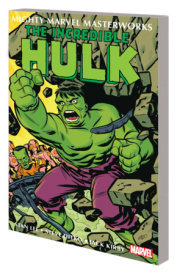
![MIGHTY MARVEL MASTERWORKS: THE INCREDIBLE HULK VOL. 2 - THE LAIR OF THE LEADER [ DM ONLY]](https://images.penguinrandomhouse.com/cover/9781302946241?width=180)
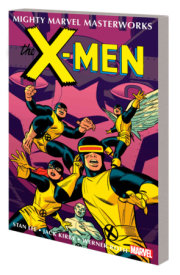
![MIGHTY MARVEL MASTERWORKS: THE X-MEN VOL. 2 - WHERE WALKS THE JUGGERNAUT [DM ONLY]](https://images.penguinrandomhouse.com/cover/9781302946203?width=180)
![THE AMAZING SPIDER-MAN OMNIBUS VOL. 1 [NEW PRINTING 4]](https://images.penguinrandomhouse.com/cover/9781302945633?width=180)
![AMAZING SPIDER-MAN EPIC COLLECTION: GREAT POWER [NEW PRINTING 2]](https://images.penguinrandomhouse.com/cover/9781302946852?width=180)
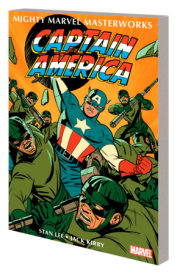
![MIGHTY MARVEL MASTERWORKS: CAPTAIN AMERICA VOL. 1 - THE SENTINEL OF LIBERTY [DM ONLY]](https://images.penguinrandomhouse.com/cover/9781302946166?width=180)
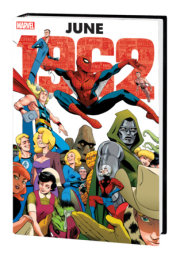
![MARVEL: JUNE 1962 OMNIBUS [DM ONLY]](https://images.penguinrandomhouse.com/cover/9781302945053?width=180)
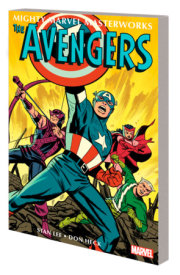
![MIGHTY MARVEL MASTERWORKS: THE AVENGERS VOL. 2 - THE OLD ORDER CHANGETH [DM ONLY ]](https://images.penguinrandomhouse.com/cover/9781302946142?width=180)
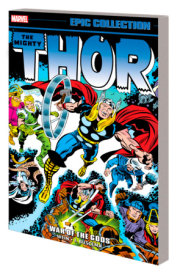
![THOR EPIC COLLECTION: THE GOD OF THUNDER [NEW PRINTING]](https://images.penguinrandomhouse.com/cover/9781302933982?width=180)
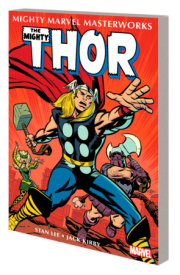
![MIGHTY MARVEL MASTERWORKS: THE MIGHTY THOR VOL. 2 - THE INVASION OF ASGARD [DM ONLY]](https://images.penguinrandomhouse.com/cover/9781302934439?width=180)
![THE INCREDIBLE HULK OMNIBUS VOL. 1 [NEW PRINTING, DM ONLY]](https://images.penguinrandomhouse.com/cover/9781302933876?width=180)
![THOR EPIC COLLECTION: THE WRATH OF ODIN [NEW PRINTING]](https://images.penguinrandomhouse.com/cover/9781302933883?width=180)
![THOR EPIC COLLECTION: TO WAKE THE MANGOG [NEW PRINTING]](https://images.penguinrandomhouse.com/cover/9781302933753?width=180)
![THE MIGHTY THOR OMNIBUS VOL. 1 [NEW PRINTING]](https://images.penguinrandomhouse.com/cover/9781302932466?width=180)
![THE MIGHTY THOR OMNIBUS VOL. 1 [NEW PRINTING, DM ONLY]](https://images.penguinrandomhouse.com/cover/9781302932473?width=180)
![THE X-MEN OMNIBUS VOL. 1 [NEW PRINTING]](https://images.penguinrandomhouse.com/cover/9781302932893?width=180)
